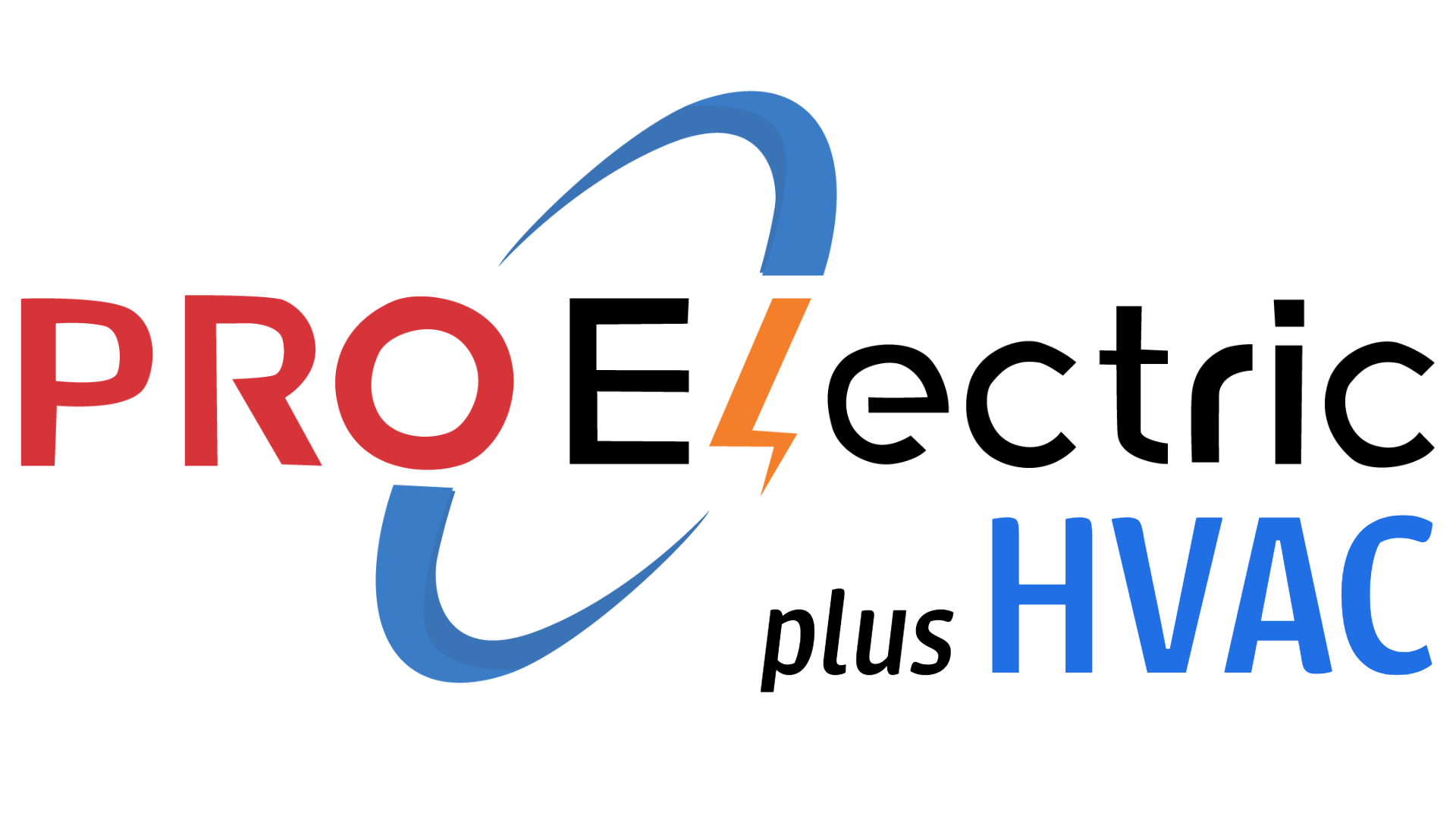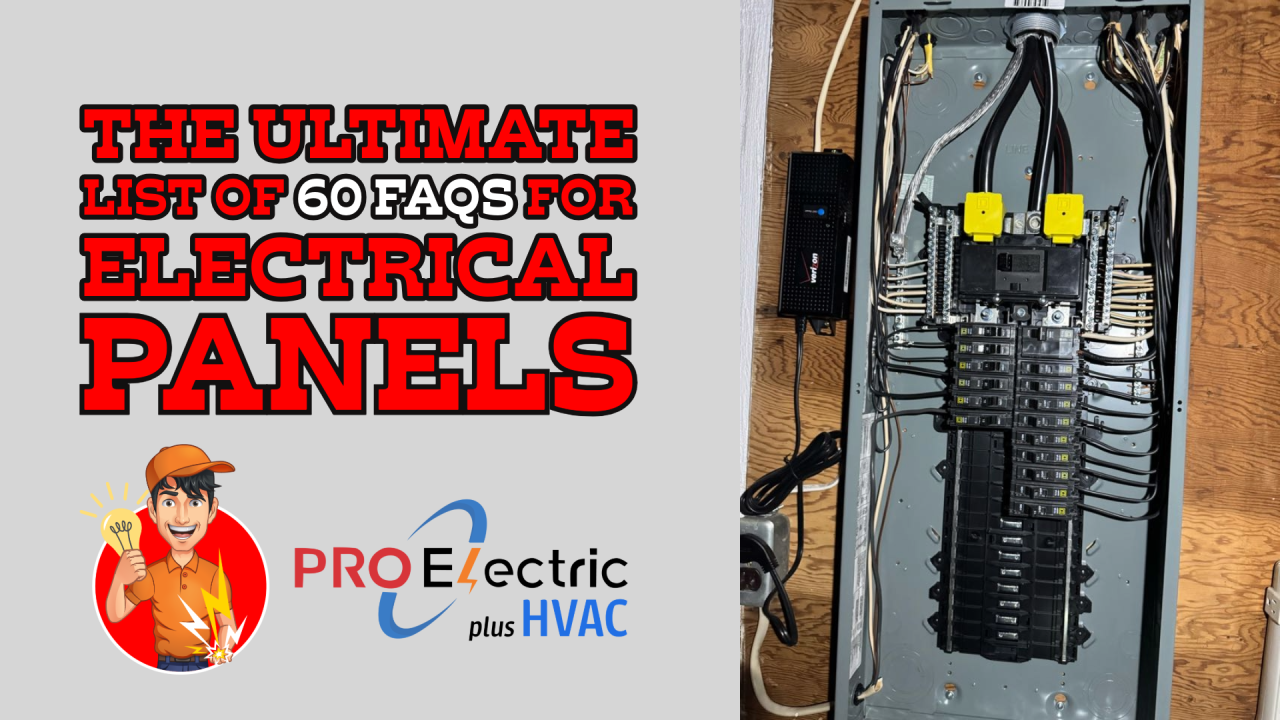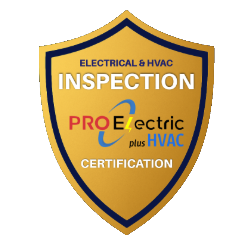Discover the top 60 frequently asked questions homeowners search on Google about electrical panels.
What is an electric panel, and what can it accomplish?
An electric panel is a breaker box or distribution board that manages your house’s wires.
It operates electricity off the main electrical supply to all the circuits in your house and contains circuit breakers or fuses to prevent the power circuits from overloading.
How can I determine if my electric panel must be upgraded?
Signs of an upgrade include frequent breaker trips, flickering lights, buzzing from the panel, warm or discolored outlets, dependency on extension cords and an outdated fuse box or panel which can not accommodate modern appliances.
Just how much will it cost you to upgrade an electric panel?
The cost depends upon amperage, complexity and local labor rates.
Upgrading to a 200-amp service charges, on average, USD 1,500 to USD 3,000 or even more.
Get a written estimate from an electrician.
What exactly is the big difference between a fuse box along with a circuit breaker panel?
A fuse box utilizes fuses that must be replaced whenever they blow because of overloads.
A circuit breaker panel has resettable breakers that trip to interrupt the circuit.
They are easier and safer than fuse boxes.
How frequently should my electric panel be examined?
A professional electrical contractor should examine your electric panel every 3 to 5 years.
Older homes or electrical issues may warrant far more frequent inspections.
Can I upgrade my electric panel myself?
Upgrading an electrical panel is complicated and perhaps dangerous.
It must be carried out by a certified electrician knowledgeable about local codes and safety rules.
What exactly makes a 100 amp versus a 200 amp electrical panel different?
The amperage rating signifies the maximum electric capability.
A 200-amp panel can take much more power than a 100-amp panel, so it’s suitable for bigger homes or larger electricity demands, including electric vehicle charging stations or numerous HVAC systems.
Will upgrading my electric panel call for a permit?
Most local jurisdictions (including Fairfax, Arlington, Loudoun, and Prince William Counties) require a permit for electric panel upgrades.
This ensures that the work meets building codes and safety standards.
Just how long does it take to change an electric panel?
The typical time spent replacing an electric panel is four to eight hours, based on the task complexity and if further upgrades are needed.
What brands of electric panels are common?
Square D, Eaton, Siemens, GE, and Leviton are common brands.
Each brand offers various models at various features and prices.
What can happen to an old electric panel?
Outdated panels may cause electrical fires, electrocution, frequent breaker trips, and failure to handle contemporary electric loads that harm appliances and electronics.
What’s a subpanel, and when does it need one?
A subpanel is an additional panel that expands the primary panel’s capacity.
It’s used when the central panel is full or when power is dispensed to an area (for instance, a workshop or even an addition).
How do circuit breakers function?
Circuit breakers shut off electric flow every time a circuit becomes overloaded or a short circuit occurs, thereby stopping system damage and fire risk.
Where does a GFCI breaker work?
A ground fault Circuit Interrupter (GFCI) breaker prevents electric shock by shutting down power whenever it senses a Ground Fault.
They’re used where there’s water, baths, kitchens, and exteriors.
Precisely why is an AFCI breaker used?
An arc Fault Circuit Interrupter (AFCI) breaker senses Arc faults (high-energy discharges that ignite) and interrupts the Circuit to prevent them.
They’re often required in bedrooms and living areas.
Could an electric panel be mounted in a bathroom or even a closet?
Because of security codes and accessibility requirements, electric panels with readily ignitable materials should not be set up in closets or bathrooms.
Why does my circuit breaker keep tripping?
Overloaded circuits, short circuits, ground faults or a lousy breaker may cause frequent trips.
Have our licensed electrician detect and correct the problem.
What is the lifetime of an electric panel?
Electrical panels last 25 to 40 years. However, this can vary with usage, environmental factors, and maintenance methods.
How to tell what size electric panel I have?
The amperage rating is usually marked on the primary breaker at the panel’s top (100A, 200A, 150A, etc.).
Are there incentives or rebates for upgrading an electric panel?
Several utility companies or federal programs reward electric upgrades such as energy efficiency improvement or renewable energy system installation.
Consult local authorities or energy providers for available programs.
What is the big difference between a main breaker panel and a main lug panel?
A main breaker panel includes a primary breaker that turns off power to other circuits, while a main lug panel does not have a primary breaker and is typically a subpanel attached to a primary panel with a breaker.
Could I add more breakers to my current panel?
If your panel has slots available and capacity, add more breakers.
If not, you will have to install a subpanel or upgrade to a much larger primary panel.
What safety precautions must I take on my electric panel?
Maintain the area around the panel clear, don’t overload circuits, don’t remove the panel coverage, and carry out regular inspections.
Always have a professional handle any issues.
What does load balancing in an electric panel do?
Load balancing distributes electric demand across circuits without overloading any single circuit.
How can I pick out the best electrical panel for my house?
Consider your current and future electric requirements, consult a certified electrician, and also ensure the panel meets neighborhood code requirements and permits expansion.
What signs does a failing electric panel look like?
Indicators include burning smells near the panel, scorch marks, buzzing or crackling sounds, hot or warm panel surfaces, and non-reset breakers.
Should I upgrade the electric panel for solar panel setup?
Often yes. Solar installations may require an upgraded panel for extra energy input and interconnection requirements.
Will homeowners insurance deal with electrical panel upgrades?
Standard homeowners insurance usually will not cover upgrades unless it’s part of a covered injury claim.
But an old panel could impact your premiums or coverage.
What’s a split-bus electric panel?
A split-bus panel divides the bus bars into two sections where there is often just one main breaker, posing a safety risk.
These are old panels and might have to be changed.
Precisely why are Federal Pacific and Zinsco panels unsafe?
These brands have a history of breaker breakdowns and safety problems, such as not tripping during overloads and posing fire hazards.
Replacement is strongly advised.
What goes on when an electric panel is overloaded?
An overloaded panel draws more current than it is rated to handle, which could cause it to overheat, cause breaker trips, and cause fire hazards.
Can rust or corrosion harm my electric panel?
Yes, rust and corrosion might compromise connections and parts within the panel, causing electrical hazards or failures.
Just how will a power surge impact my electric panel?
Power surges may damage circuit breakers along with other panel components.
Whole-house surge protection can help avoid that danger.
What role does the neutral wire have in an electric panel?
The neutral wire completes the power circuit by returning the current to the power source.
Should circuits be labeled in my electric panel?
Yes, clearly labeling each circuit reveals which breaker controls which areas or appliances, aiding troubleshooting and crises.
Could my electric panel be relocated?
Moving an electric panel is complex and must be done according to codes.
A licensed electrician must safely handle the relocation.
What are tandem breakers, and can they be safe to work with?
Tandem breakers (“cheater”) allow two circuits in a slot.
They’re safe when the panel is made for them and if the panel has a capacity limit.
Just how can an electric panel handle 240-volt circuits?
240-volt circuits call for a double-pole breaker to connect to both hot bus bars in the panel and provide the voltage for heavy appliances such as an oven and dryer.
Why is grounding needed in an electric panel?
Grounding enables excess electricity to flow safely through faults without risking electric shock and equipment damage.
Can tree roots or landscaping impact my electric panel?
Though the panel itself is indoors, tree roots might harm underground service lines to it.
Therefore, the outdoor electrical infrastructure must be inspected frequently.
What if water enters my electric panel?
Water intrusion is hazardous.
Never touch the panel; immediately call a licensed electrician to evaluate and repair the damage.
What are smart electric panels?
Yes, smart panels provide advanced features such as energy monitoring, remote management, and integration with smart home systems.
How to reset a tripped breaker safely?
Find the tripped breaker (it must be in the middle position) and flip it off then back on.
When it trips again, call an electrician.
What exactly is a short circuit and its impact on the panel?
A short circuit occurs when a hot wire contacts a ground or neutral wire, and the current is simply too great.
Breakers trip to prevent damage, but frequent shorts signal a wiring issue that needs professional attention.
How does an electrical panel distribute power through my home?
An electric panel gets electricity from the energy provider and routes it to individual circuits that supply appliances, lights, and outlets.
Each circuit is safeguarded by a breaker which interrupts electricity in case of a short circuit or overload.
What exactly is a main breaker, and exactly how does it function?
The main breaker is really a big switch which controls the power supply to your panel circuits.
It enables you to switch off electricity to the entire house – a security feature in case of an emergency or even while working on electric work.
Can I add circuits to a subpanel by myself?
Although technically doable for an electrically – savvy person, installing a subpanel is complicated and should be performed by a licensed electrician for safety and code compliance.
So why do I require arc fault circuit interrupters (AFCIs)?
AFCIs are special breakers that prevent electrical arcs from starting fires.
Most building regulations require AFCIs in bedrooms and other living areas.
How to reset a tripped circuit breaker?
Find the “tripped” breaker (around halfway between on & off) and turn it entirely to the “off” position and then again to “on.”
When it trips once again, call an electrician.
What’s a GFCI breaker and where is it utilized?
A ground fault Circuit Interrupter (GFCI) breaker stops power whenever it senses a Ground Fault.
They’re required in water-containing spaces like kitchens, bathrooms, garages and outdoor outlets.
Can my electrical panel handle a home generator or solar panels?
Integration with solar panels or generator generally requires additional equipment like transfer switches or inverter systems.
A licensed electrician can check your panel for compatibility and perform needed upgrades.
Precisely why does my electric panel buzz or hum?
Odd noises could indicate overloaded circuits, loose connections, or flawed breakers.
These problems are unsafe and should be evaluated by a professional immediately.
Precisely, why perform a load calculation?
A load calculation shows you the electrical demand in your house, which makes your panel capable of handling the load safely.
It’s needed when upgrading your panel or adding big electric appliances.
Is it possible to paint over an electric panel to match my decor?
Painting the panel exterior is permitted but not over labels, vents, or interior elements.
Always make clear safety info visible.
What exactly are tandem breakers, and can they be safe to work with?
Tandem breakers allow two circuits per breaker slot.
They’re safe when your panel accommodates them and when you install them according to the manufacturer’s code and specifications.
How does a whole house surge protector work with my electric panel?
A whole-house surge protector is installed at your electric panel to avoid dangerous voltage spikes caused by lightning strikes, power surges, or utility issues.
What exactly makes single-phase versus three-phase power different in panels?
Single-phase electricity is typical in residential settings and supplies sufficient electricity for regular household use.
Three-phase power is utilized where higher power capability is needed in industrial or commercial settings.
Is aluminum wiring in my panel hazardous?
When put in and maintained correctly, aluminum wiring is safe.
However, special connectors and anti-oxidant compounds are needed to prevent fire hazards and corrosion. An electrician should check aluminum wiring for safety.
Precisely why are some breakers in my panel double pole breakers?
Double-pole breakers are used for circuits that require 240 volts (such as those for electric dryers, ovens, or HVAC systems).
They occupy two slots in the panel and plug into either hot bus bar.
What is a dead front cover, and what is its importance?
The dead front cover is inside your electric panel, preventing users from accidentally touching living electrical parts while accessing breakers.
How can I know if my panel is recalled or obsolete?
Find out the maker and model number of your panel.
Some panels, including some from Federal Pacific or Zinsco, have safety problems. See an electrician or look into consumer safety databases for recall details.
What if I smell burning or even see scorch marks near my panel?
Switch off the main breaker whenever possible and call an authorized electrician.
Burning smells or scorch marks might suggest severe electrical problems, which could cause a fire hazard.
Should I label the circuits in my electric panel?
Yes, labeling each circuit helps rapidly determine which breaker controls which areas or appliances.
This makes troubleshooting easier and improves safety when repairs or emergencies occur.
Could rodents or pests damage my electric panel?
Yes, rodents can chew through wiring and create shorts or fires.
Look at your panel and surrounding areas for pests and take preventive measures when needed.
What exactly is selective coordination in electric panels?
Selective coordination utilizes breakers and protective products so the device closest to a fault trips first.
This reduces disruption because upstream breakers can not shut down power to unaffected circuits.
Just why does my electric panel feel hot to the touch?
Unusually warm or hot panels could signal overloads, loose connections, or other severe issues.
Switch off the electricity and speak with an electrician to evaluate the situation immediately.
What purpose does the neutral bus bar in my panel have?
The neutral bus bar gathers all the neutral (return) cables from your circuits, leads to the utility for unbalanced electric loads, and completes the electrical circuit.
Can I relocate my electric panel elsewhere in my house?
Moving an electric panel involves complicated electrical work and particular codes.
A licensed electrician must do the relocation.
How can an electric panel interface with smart home solutions?
Contemporary electric panels may be integrated with smart home systems for energy monitoring, remote circuit control, and enhanced energy efficiency via smart breakers or connected products.
Backfeeding: What exactly is it, and why is it dangerous?
Backfeeding occurs when power flows in the opposite direction (for instance, if a generator is linked improperly).
It might threaten utility employees and ruin equipment.
Correct transfer switches must avoid backfeeding.
Are there electrical panels for commercial use?
Yes, commercial electric panels can handle greater loads, three-phase energy and usually have advanced features including metering and enhanced safety mechanisms for commercial environments.
What codes require electrical panels in my area?
Code requirements differ by locality but typically follow the NEC.
They set panel placement, amperage ratings, breaker types, and safety features.
For particulars, speak to local building departments or a licensed electrician.
What environmental variables, like humidity, impact my electric panel?
Excessive humidity may cause condensation inside the panel, which can lead to corrosion, rust, and possible electrical faults.
These risks should be avoided by installing panels in dry and ventilated locations.
What is a main lug-only (MLO) panel, and when does it work?
An MLO panel does not have a main breaker and is typically fed as a subpanel from a primary panel with overcurrent protection.
It’s suitable where the main disconnect is elsewhere in the system.
Could rodents or pests ruin my electrical panel?
Yes, rodents chew through wiring and light up fires. Protect your panel and wiring from pests.
Understanding your electric panel is crucial for preserving your house’s power system.
If you have questions or require advice on inspections, repairs, or upgrades, contact our licensed electrician, who can offer personalized services and guidance.



